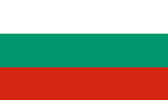
Call 0330 880 3600 Calls may be monitored or recorded. Opening Times.
- TRAVEL INSURANCE
- COVID-19 COVER
- More Options
- Help & Advice
- Existing Customers

Call 0330 880 3600 Calls may be monitored or recorded. Opening Times.

Need help?
UK Customer Services0330 880 3600*
Open Monday to Friday 9:00am to 6pm, Saturday 8:30am to 4pm and closed Sundays.
*Calls are recorded for training and quality purposes.

Official name: Republic of Bulgaria
Capital city: Sofia
Languages spoken: Bulgarian (majority), Turkish, Roma
Population: Around 6.3 million
Currency: Bulgarian lev (BGN)
Time zone: GMT+2 (GMT+3 in summer)
Driving side: Right
Climate: Continental, with cold winters and hot summers, Mediterranean influence in the south
Bulgaria, located in Southeast Europe, is a country of striking contrasts — from the sandy beaches of the Black Sea to the peaks of the Balkan Mountains. Sofia, the capital, blends Soviet-era architecture with a youthful, modern energy. Beyond the cities, travellers can explore historic monasteries, vineyards, ski resorts, and rural villages that still preserve age-old traditions.
Bulgaria is bordered by Romania, Serbia, North Macedonia, Greece, and Turkey, with a long eastern coastline on the Black Sea. Its landscape is a mix of mountains, plains, rivers, and forests, with Musala in the Rila Mountains standing as the highest peak at 2,925 metres. The Danube River marks much of its northern border. Natural hazards include earthquakes and landslides, though these are relatively infrequent.
Public transport is reliable and inexpensive, with extensive bus and rail networks connecting cities and towns. Sofia has a metro system, while taxis are widely available but should be licensed. Driving is on the right. Crime levels are moderate - petty theft and pickpocketing occur, particularly in busy tourist areas and on public transport. Visitors should also be cautious of overcharging in taxis and scams targeting foreigners.
As an EU member state, Bulgaria allows visa-free entry for short stays (up to 90 days in a 180-day period) for UK, EU, and many other nationals. Passports must be valid for at least three months beyond departure. For longer stays, work, or study, a visa or residence permit is required. Travellers should check the latest entry requirements before travelling.
The official currency is the Bulgarian lev (BGN), which is pegged to the euro. ATMs are widely available in cities and larger towns, and credit cards are commonly accepted in hotels, restaurants, and shops. Smaller businesses, particularly in rural areas, may prefer cash. Money should be exchanged at banks or official exchange offices — avoid street exchangers.
Healthcare in Bulgaria is adequate in major cities but more limited in rural areas. Emergency services can be slow outside Sofia, and standards may not match those of Western Europe. Travellers should carry medical insurance with cover for repatriation. Vaccinations against hepatitis A, hepatitis B, and rabies may be recommended, in addition to routine immunisations. Tick-borne diseases can be a risk in rural and forested areas during spring and summer. Bottled or boiled water is advisable in some regions.